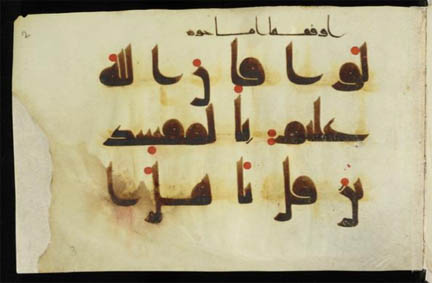
The Cambridge Digital Library now has online access to some of their Islamic manuscripts. Details below, as described on the website:
Cambridge University Library’s collection of Islamic manuscripts dates from the origins of Arabic scholarship in Cambridge in the 1630s when the University founded a Professorship in Arabic and William Bedwell donated a Qur’an to the Library. Since that time the collection has grown in size and diversity to over 5,000 works, including the collections of Thomas Erpenius, J.L.Burckhardt, E.H.Palmer and E.G. Browne. These manuscripts shed light on many aspects of the Islamic world, its beliefs and learning.
The collection was further enriched over the centuries through the activities of scholarly collectors and skilled librarians, adding more depth to the already impressive range of manuscripts. Yet this extraordinary collection has remained relatively unknown outside Cambridge. Now we hope to draw better attention to its treasures through cataloguing and digitisation. We have collaborated with the Bodleian at Oxford and other research libraries to provide an online catalogue of the collection. We will be offering a selection of digitised manuscripts through the Foundations project and will seek funding for further digitisation.
Our initial release includes several examples of Qur’anic manuscripts. The holy Qur’an is the most significant text in Islamic civilisation. Continued reproduction of the unchanging Arabic text led to the development of many differing calligraphic styles. A very rich heritage of manuscript copies of the Qur’an survives and the library has an impressive collection.